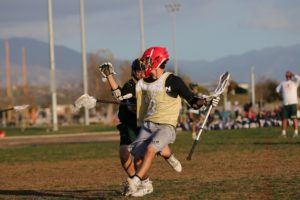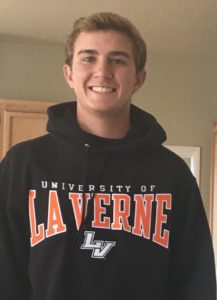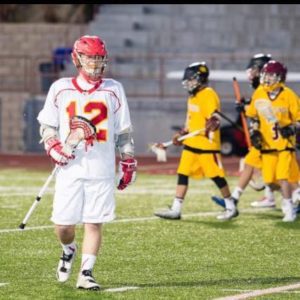2016-17 NCAA Division I Recruiting Calendar (with explanations)
Posted by SportsForce in College, Lacrosse, Prep, Recruiting, Tips & Advice, tags: athletic scholarship, college athlete, College Coaches, college lacrosse, college recruiting, evaluation periods, high school lacrosse, NCAA, ncaa calendar, NCAA division I, prospective student athlete, quiet periods, recruiting process, student athleteWith this year’s summer club seasons complete and fall tryouts proceeding through late August and September, we thought this was the perfect time to take a look at NCAA DI recruiting schedules for college lacrosse and see where they fit in our fall recruiting plan. Additionally, we’ve provided the NCAA definitions of each recruiting period on the calendar. You can find all the information below, straight from the NCAA, at the following links:
NCAA Division I Men’s Lacrosse Recruiting Calendar:
https://www.ncaa.org/sites/default/files/June2016_DIMensLacrosseCalendar_20160613.pdf
NCAA Recruiting Calendar FAQs:
http://www.ncaa.org/student-athletes/resources/recruiting-calendars?division=d1
Contact Periods
A contact period is a period of time when it is permissible for authorized athletics department staff members to make in-person, off-campus recruiting contacts and evaluations.
During a contact period a college coach may have face-to-face contact with college-bound student-athletes or their parents, watch student-athletes compete and visit their high schools, and write or telephone student-athletes or their parents.
Contact Defined: A contact is any face-to-face encounter between a prospective student-athlete or the prospective student-athlete’s relatives, guardian(s) or individual of a comparable relationship and an institutional athletics department staff member or athletics representative during which any dialogue occurs in excess of an exchange of a greeting. Any such face-to-face encounter that is prearranged (e.g., positions himself/herself in a location where contact is possible) or that takes place on the grounds of the prospective student-athlete’s educational institution or at the site of organized competition or practice involving the prospective student-athlete or the prospective student-athlete’s high school, preparatory school, two-year college or all-star team shall be considered a contact, regardless of the conversation that occurs. Any communication (e.g., face-to-face, telephone call or electronic transmission) with a prospective student-athlete at the site of organized competition involving the prospective student-athlete by athletics personnel who are attending the competition or who are aware of the competition also shall be considered a contact.
Evaluation Periods
An evaluation period is a period of time when it is permissible for authorized athletics department staff members to be involved in off-campus activities designed to assess the academic qualifications and playing ability of prospective student-athletes. No in-person, off-campus recruiting contacts shall be made with the prospective student-athlete during an evaluation period.
During an evaluation period a college coach may watch college-bound student-athletes compete, visit their high schools, and write or telephone student-athletes or their parents. However, a college coach may not have face-to-face contact with college-bound student-athletes or their parents off the college’s campus during an evaluation period.
Evaluation Defined: An evaluation is any off-campus activity designed to assess the academic qualifications or athletics ability of a prospective student-athlete, including any visit to a prospective student-athlete’s educational institution (during which no contact occurs) or the observation of a prospective student-athlete participating in any practice or competition at any site.
Quiet Periods
A quiet period is a period of time when it is permissible to make in-person recruiting contacts only on the institution’s campus. No in-person, off-campus recruiting contacts or evaluations may be made during the quiet period.
During a quiet period, a college coach may only have face-to-face contact with college-bound student-athletes or their parents on the college’s campus. A coach may not watch student-athletes compete (unless a competition occurs on the college’s campus) or visit their high schools. Coaches may write or telephone college-bound student-athletes or their parents during this time.
Dead Periods
A dead period is a period of time when it is not permissible to make in-person recruiting contacts or evaluations on or off the institution’s campus or to permit official or unofficial visits by prospective student-athletes to the institution’s campus. It remains permissible, however, for an institutional staff member to write or telephone a prospective student-athlete during a dead period.
IMPORTANT TO NOTE
Institutional staff members may receive telephone calls placed by a prospective student-athlete at the prospective student-athlete’s own expense at any time, including before July 1 following the prospective student-athlete’s junior year in high school.
So please use this information to plan your fall/winter recruiting cycle. Form your plan early, then just play hard, have fun, and good luck!








